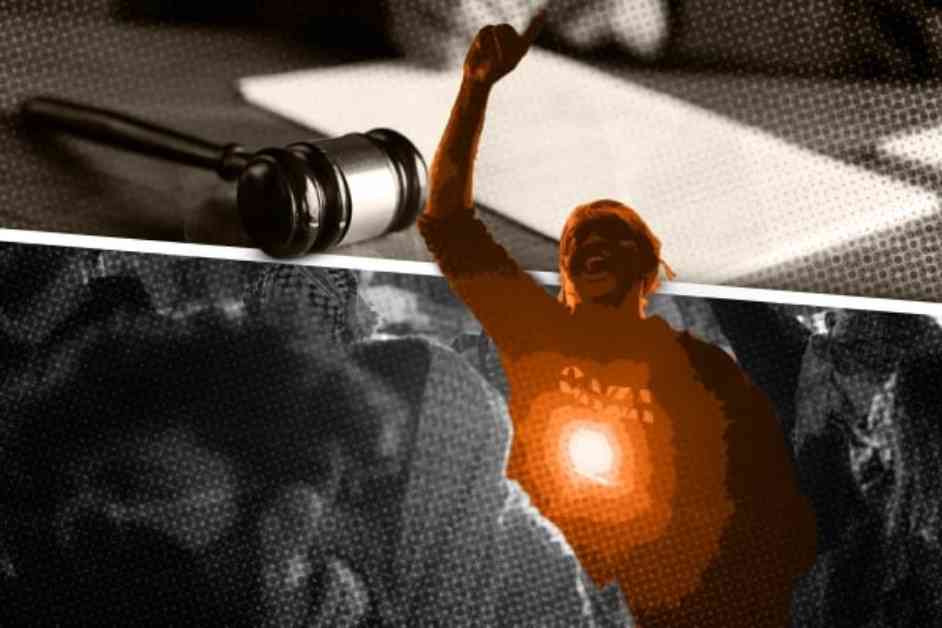Students Challenge University Sanctions in Legal Battles
In a growing trend across college campuses, student protesters are challenging the sanctions imposed by their institutions following demonstrations in support of the Palestinian cause. These legal battles highlight the complex intersection between freedom of expression, campus policies, and due process rights.
The lawsuit filed by five students against the University of California, Irvine (UCI) raises important questions about the fairness of disciplinary actions taken against protesters. While the students acknowledge violating the university’s code of conduct during pro-Palestinian protests, they argue that the interim suspensions they received were unjust and violated the institution’s own policies.
Due Process Concerns and Legal Strategies
The crux of the legal challenge lies in the due process requirements that universities must adhere to when imposing sanctions on students. The plaintiffs at UCI allege that they were not given prior notice of the suspensions or the opportunity to respond, as required by state and federal due process protections. They also claim that the university failed to provide evidence to support the suspensions, raising questions about procedural fairness.
This case is just one example of a broader trend where student protesters are pushing back against disciplinary measures that they view as disproportionate or biased. Jim Neumeister, a senior research scientist at the Higher Education Analytics Center, notes that students are challenging both the process through which sanctions are determined and the underlying reasons for their punishment.
Legal Battles Across Different Institutions
The legal challenges extend beyond UCI to other universities where student protesters have faced disciplinary actions. At Towson University, five students received deferred suspensions after participating in a protest on campus. Their lawyers argue that the university’s policies infringed on their First Amendment rights by imposing restrictions on where and how they could protest.
Similarly, seven students at Illinois State University (ISU) are contesting interim suspensions and no-trespass orders they received following pro-Palestinian demonstrations. The students allege that administrators exhibited bias against them based on their political views, asserting that their sanctions were motivated by the dean’s personal beliefs rather than legitimate concerns.
Legal Strategies and Potential Outcomes
In each case, the students are seeking to have their sanctions overturned and their records cleared. While some are primarily focused on challenging the processes and procedures followed by their institutions, others are raising allegations of bias and discrimination in the disciplinary process.
The outcomes of these legal battles could have far-reaching implications for how universities handle student protests and enforce disciplinary measures. Students hope not only to have their charges dropped but also to receive compensation for the disruptions to their academic careers and lives caused by the sanctions.
As these cases unfold, they shed light on the delicate balance between protecting freedom of expression on college campuses and maintaining order and safety. The legal challenges serve as a reminder of the importance of upholding due process rights and ensuring fairness in the disciplinary process, especially when it comes to contentious issues like political activism and social justice advocacy.




















